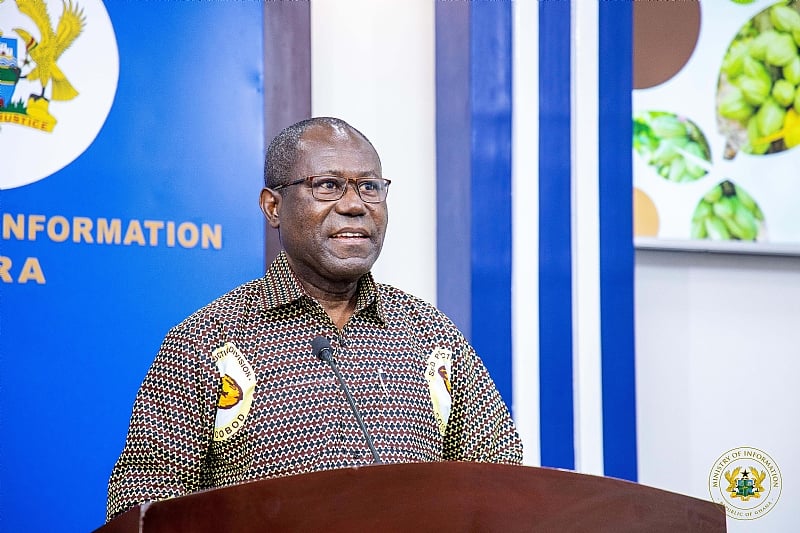The Ghana Cocoa Board (COCOBOD) has achieved remarkable progress in enhancing cocoa productivity, digitization, sustainability, and the welfare of farmers since 2017. The introduction of Productivity Enhancement Programmes (PEPs) has played a crucial role in revitalizing cocoa farms throughout the nation. Under the stewardship of Chief Executive Mr. Joseph Boahen Aidoo, COCOBOD has implemented several initiatives—including the Cocoa Farms Rehabilitation Programme, mass pruning, and hand pollination—that have significantly improved cocoa yields. At the outset of his tenure in 2017, 23% of cocoa farms were considered moribund, and 17% were impacted by Cocoa Swollen Shoot Virus Disease (CSSVD). Comprehensive rehabilitation efforts and the adoption of good agronomic practices have succeeded in boosting cocoa yields from an average of 450 kg/ha to an impressive 1000 kg/ha.
Furthermore, in response to the changing landscape of agriculture and market demands, COCOBOD has embraced digital innovation to streamline operations across the cocoa sector. The rollout of initiatives such as the Cocoa Management System and the Ghana Cocoa Traceability System (GCTS) has fostered greater transparency and traceability within the supply chain. Additionally, the introduction of a new financing model for cocoa purchases and the transition to direct cocoa shipment from Kumasi’s Kaase Inland Port are essential strategies to minimize costs and improve efficiency in cocoa exports. Prior to these changes, cocoa beans underwent double handling during transportation from Kumasi to ports in Tema and Takoradi, which not only increased costs but also led to significant delays. The revised approach has allowed COCOBOD to deliver cocoa directly to vessels, thereby reducing handling time and optimizing storage usage at its warehouses in Kumasi.
In collaboration with key stakeholders, COCOBOD has also made significant progress in promoting sustainable cocoa farming practices, a vital aspect of ensuring the long-term viability of the industry and alleviating ecological concerns. Initiatives like the Cocoa Forest REDD+ Programme, Agroforestry and Biodiversity Enhancement, and Climate-smart agricultural training have been implemented to encourage environmentally responsible farming while simultaneously enhancing productivity. These efforts reflect a holistic approach to agricultural development, aiming not only to improve yields but also to contribute positively to environmental conservation and biodiversity preservation.
The well-being of cocoa farmers remains a central focus of COCOBOD’s strategic initiatives. The board has introduced the Living Income Differential (LID) program, which is designed to improve the financial stability of farmers by providing fair prices for their produce. Additionally, the Cocoa Farmers Pension Scheme (CFPS) has been put in place to secure the future livelihoods of farmers, ensuring they have financial support after they retire from farming. Such initiatives indicate COCOBOD’s commitment to elevating the standards of living for cocoa farmers and ensuring they are compensated fairly for their hard work and contributions to the sector.
Mr. Aidoo underscored the importance of improving farmers’ livelihoods as a core objective for COCOBOD. He reassured the public of the organization’s unwavering commitment to supporting cocoa farmers, increasing productivity, and enhancing incomes throughout Ghana’s cocoa and shea sectors. The various programs instituted by COCOBOD are not merely reactive measures; they represent a proactive strategy aimed at revitalizing the entire cocoa industry and securing a better future for the farmers who are the backbone of this crucial economic sector.
In summary, COCOBOD has embarked on a journey of transformation since 2017 that prioritizes not just productivity and efficiency, but sustainability and farmer welfare as well. With a focus on innovative solutions, sustainable practices, and fair compensation for farmers, COCOBOD’s initiatives are set to reinvigorate Ghana’s cocoa and shea sectors. By taking a comprehensive approach that integrates environmental stewardship with economic viability, COCOBOD is ensuring a resilient and prosperous future for Ghana’s cocoa industry and its many stakeholders, fostering both growth and stability in this vital sector.














